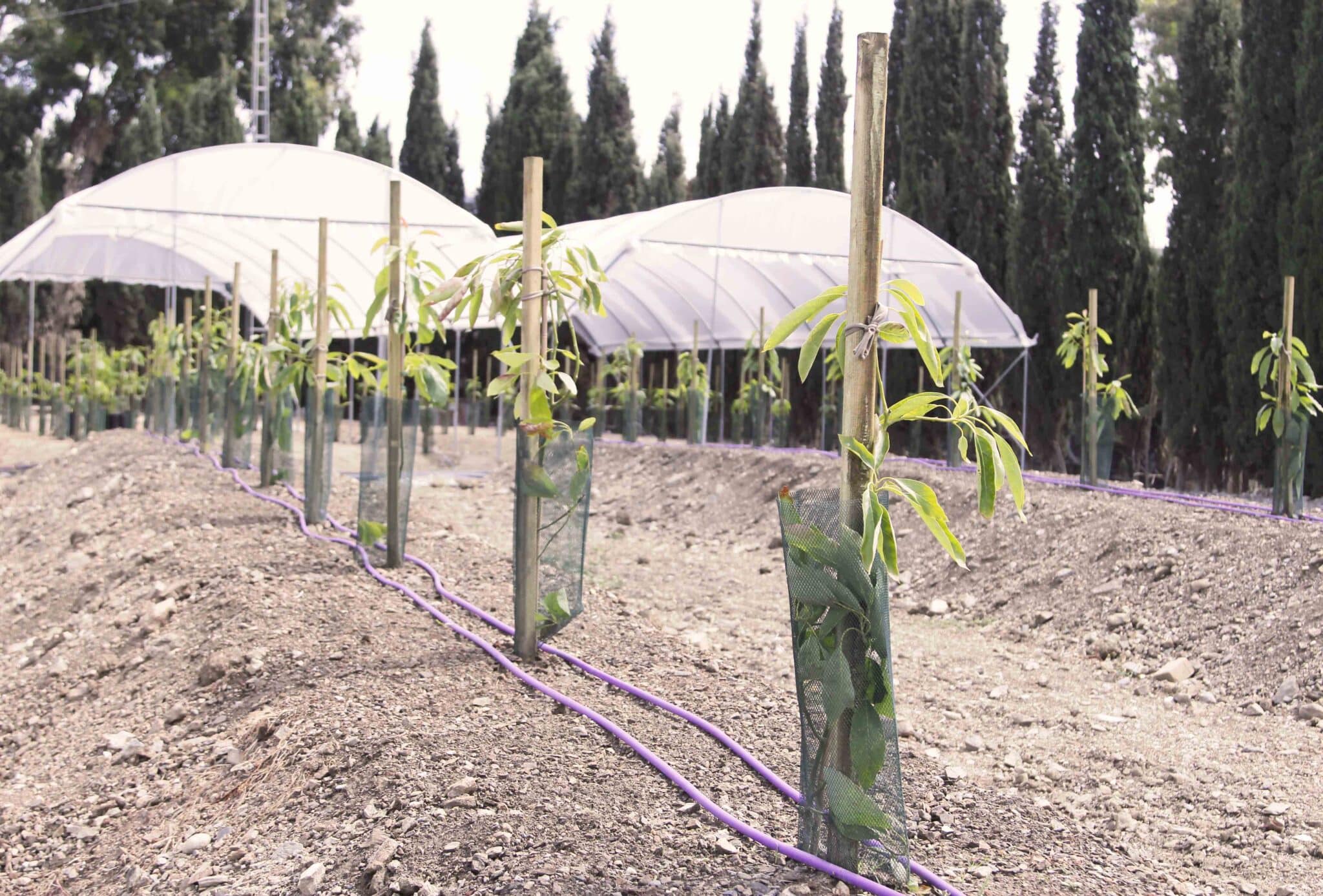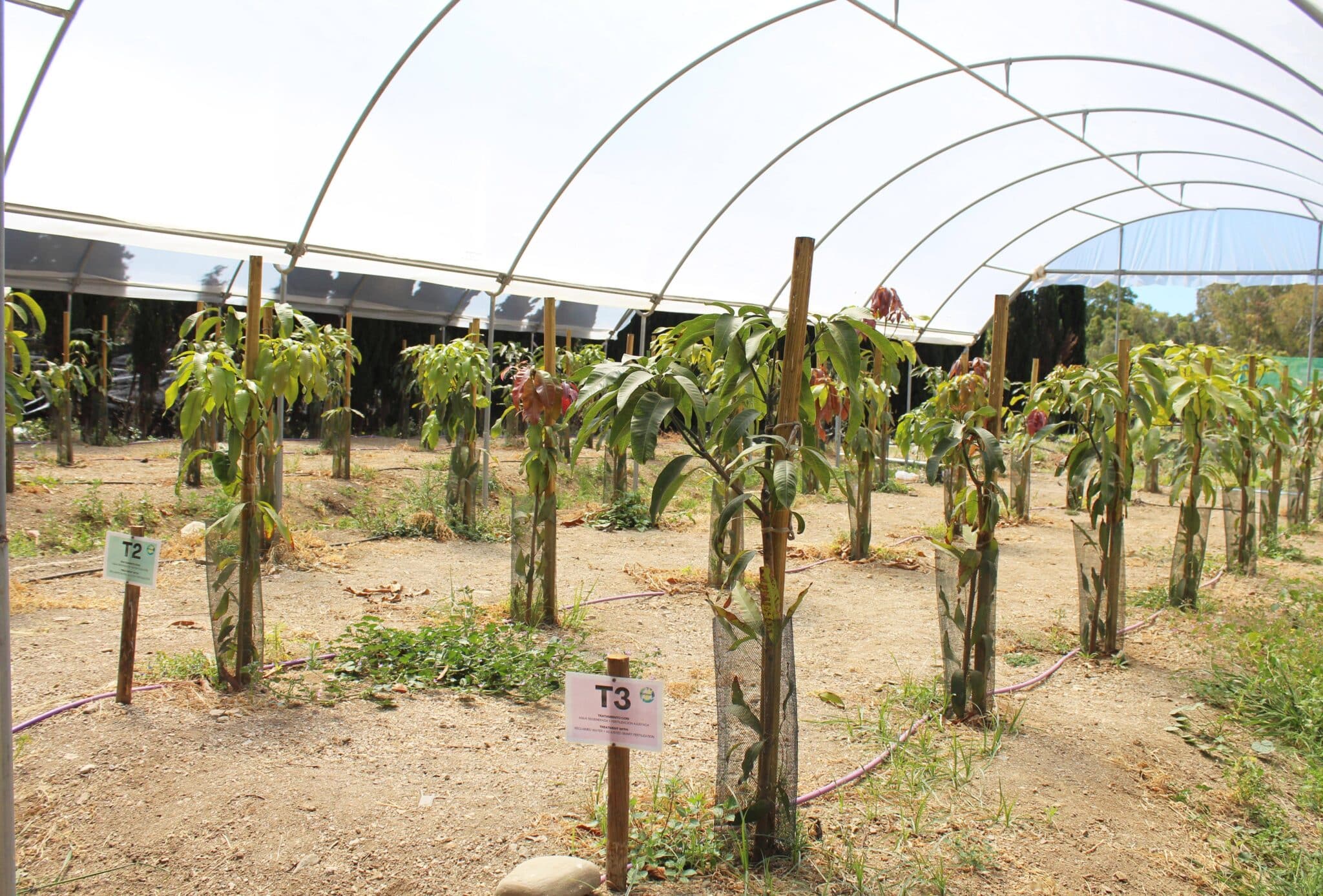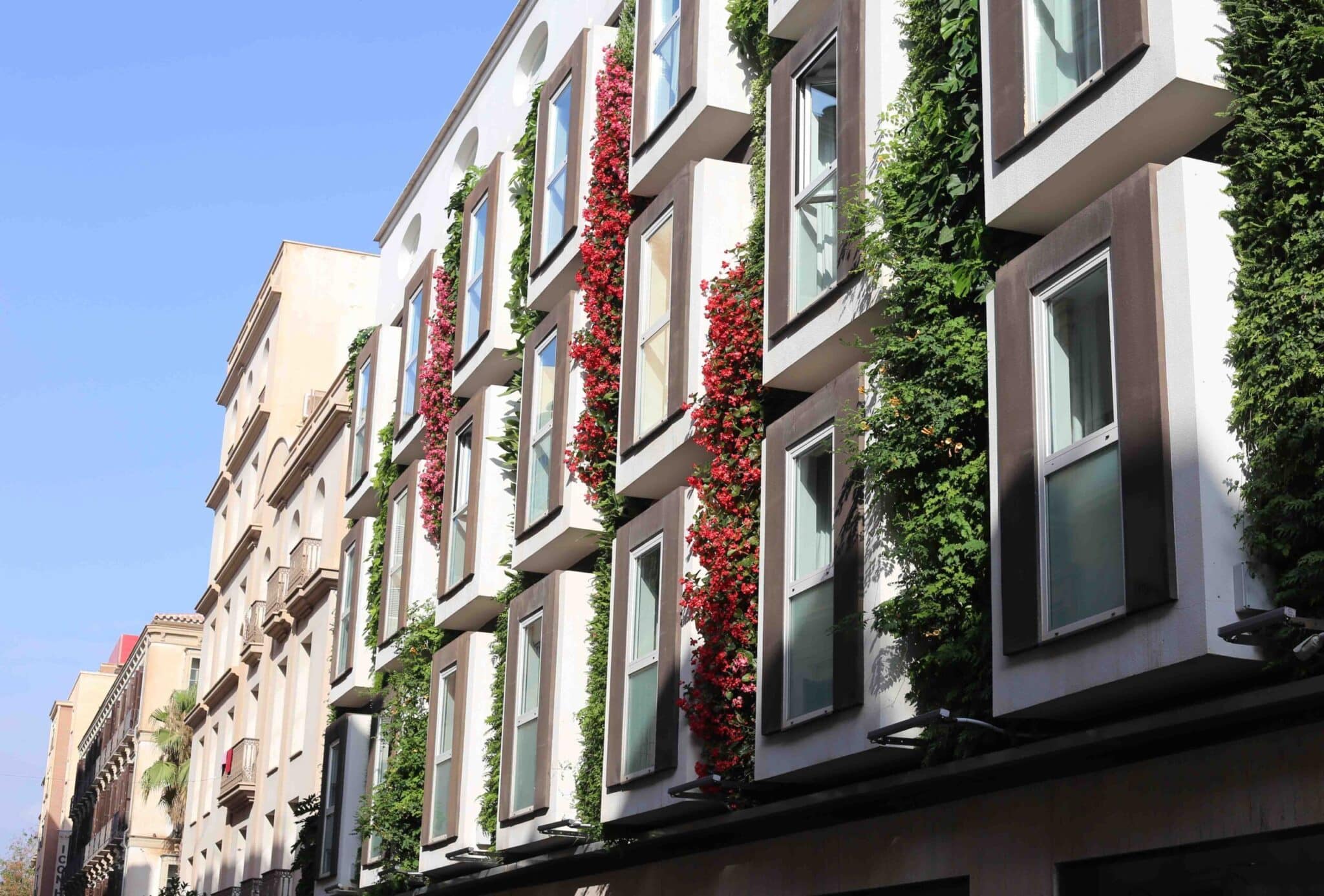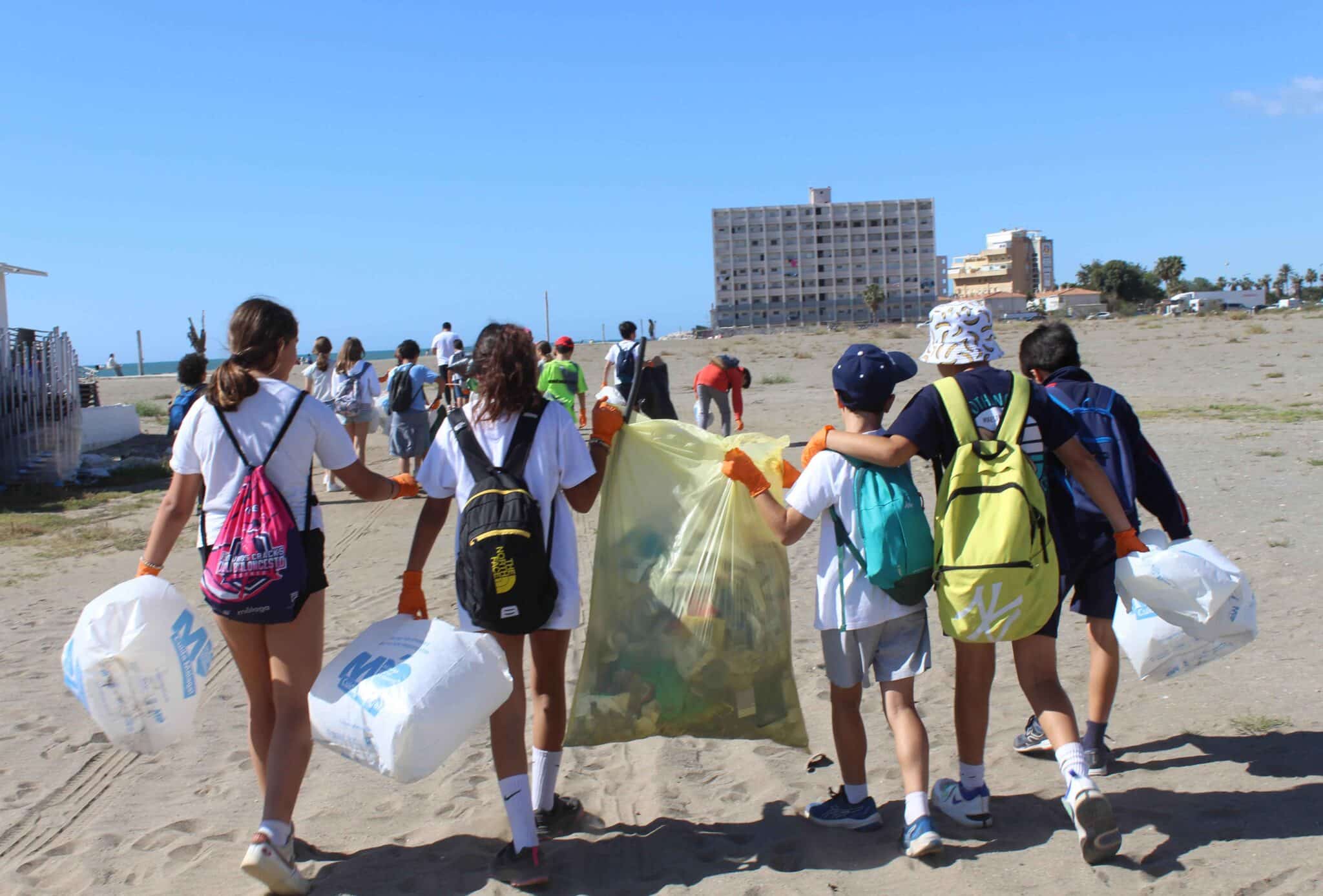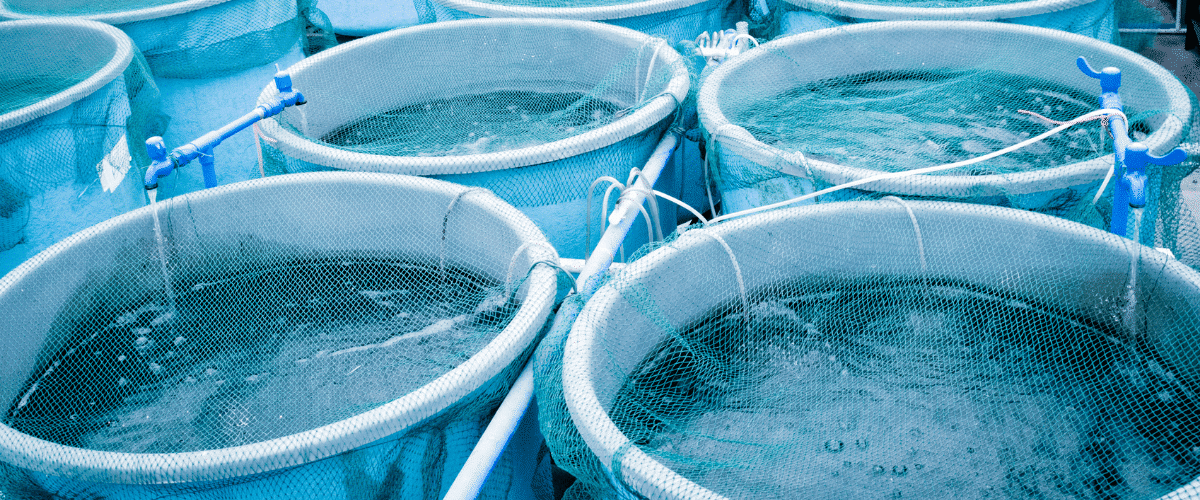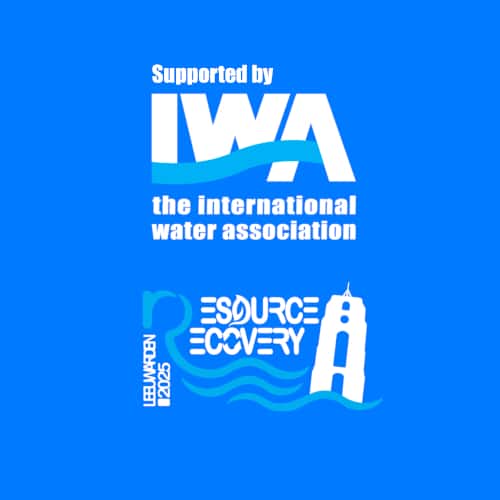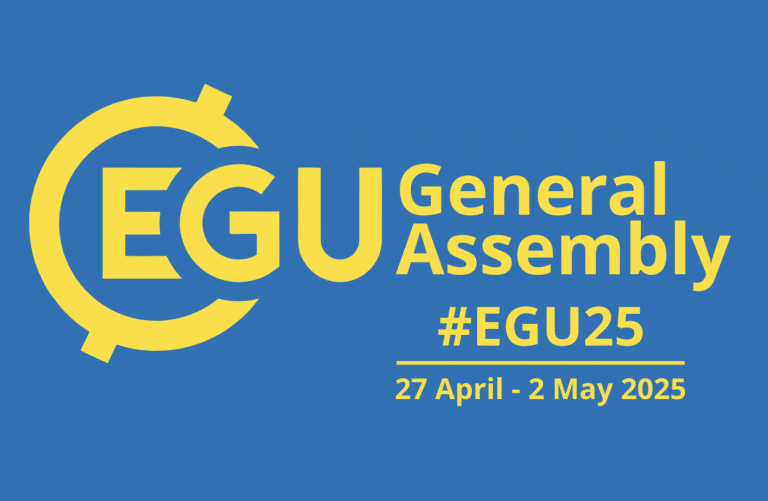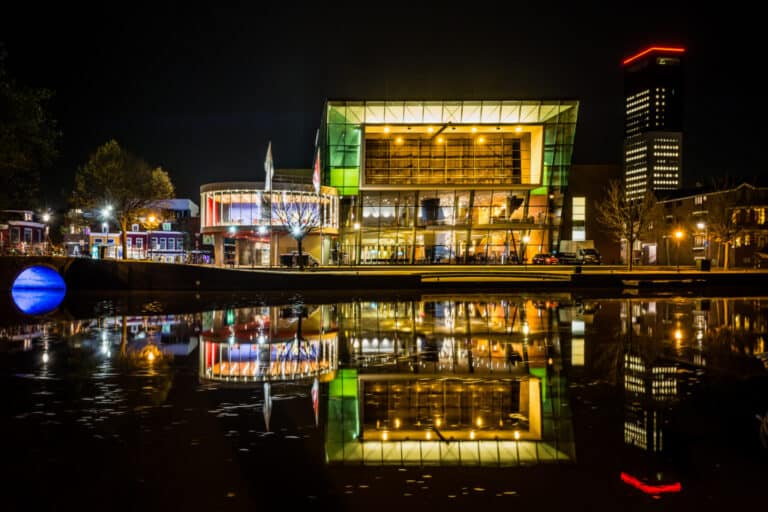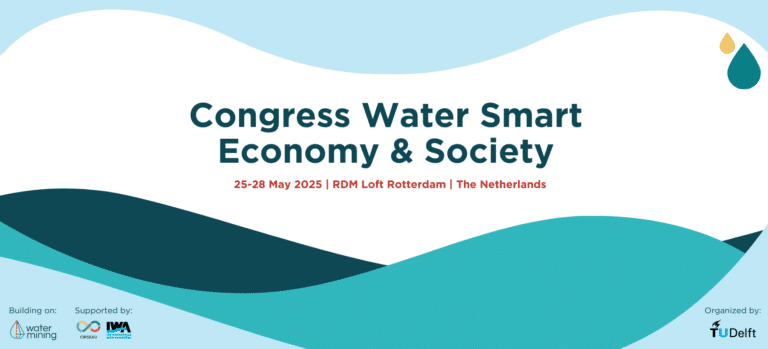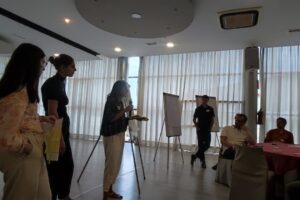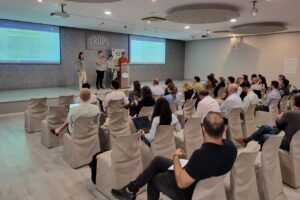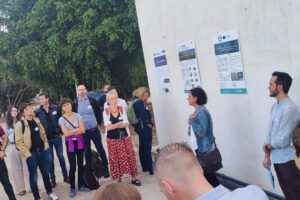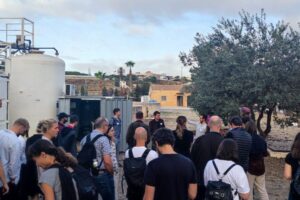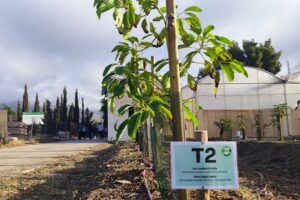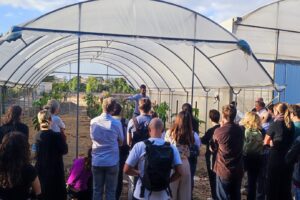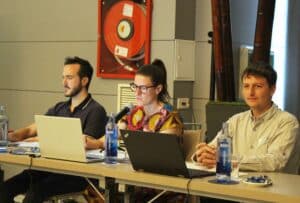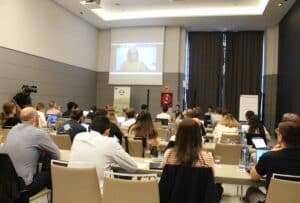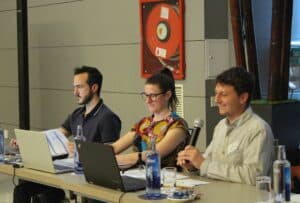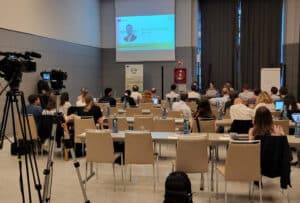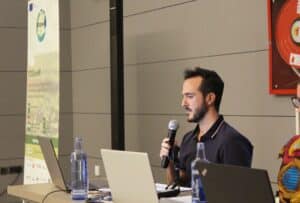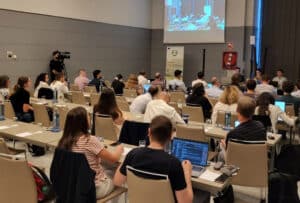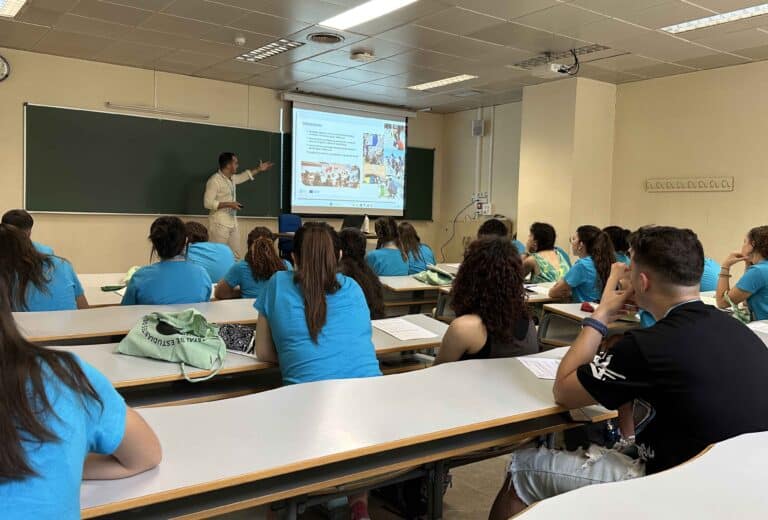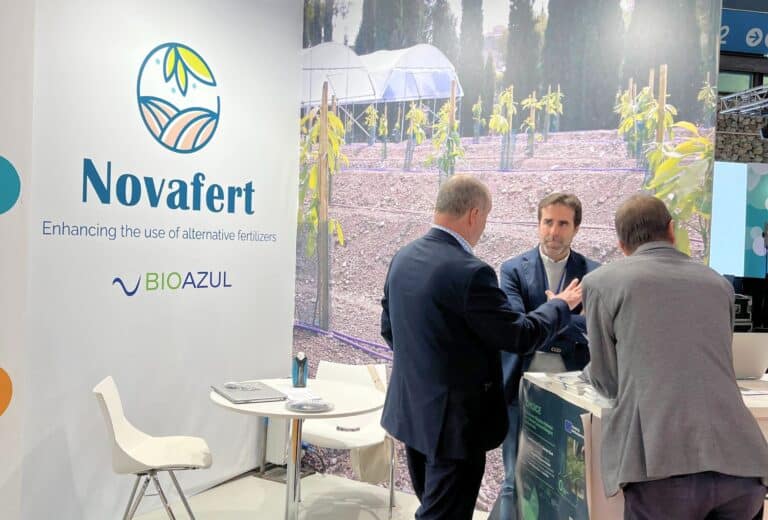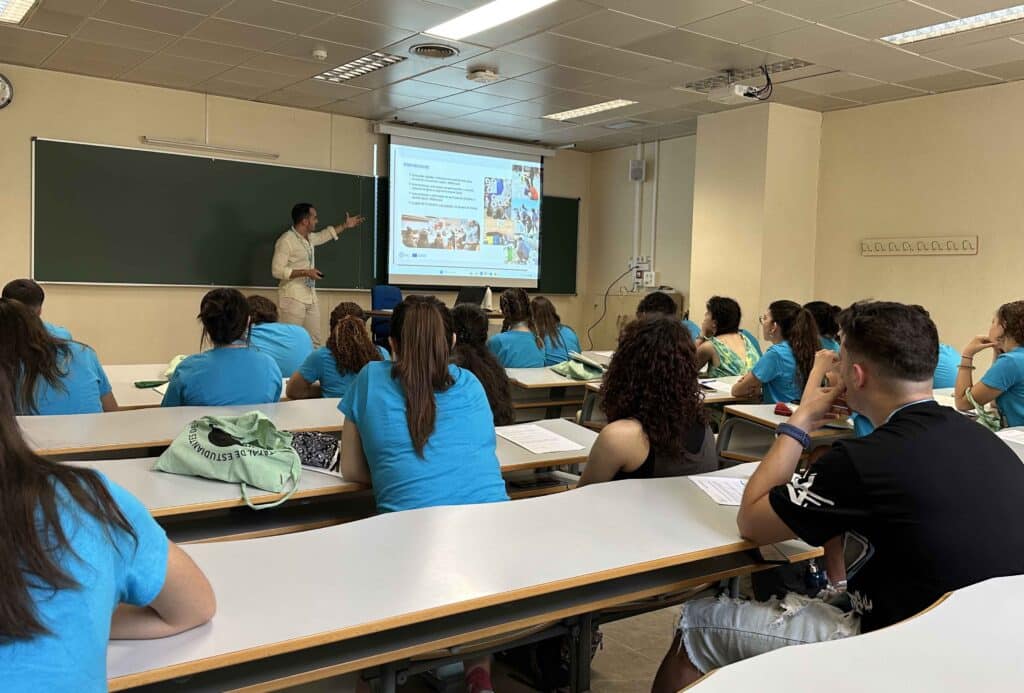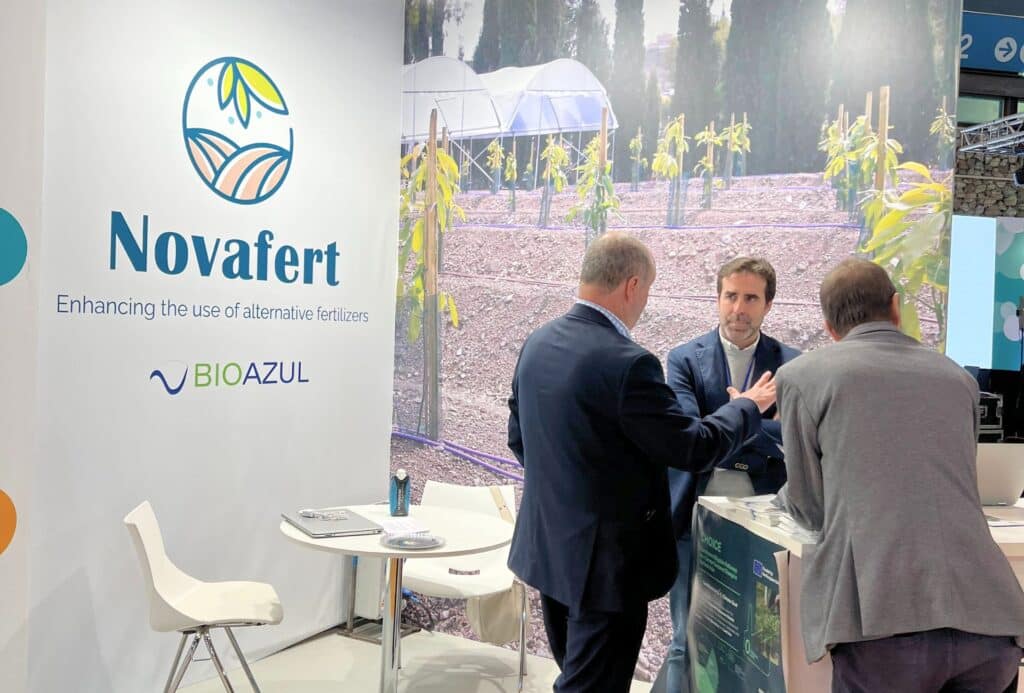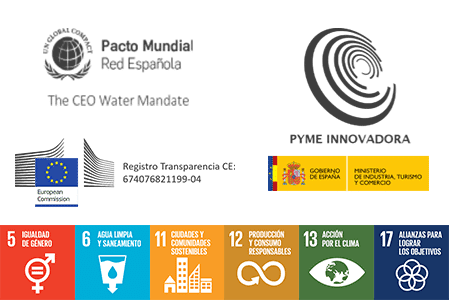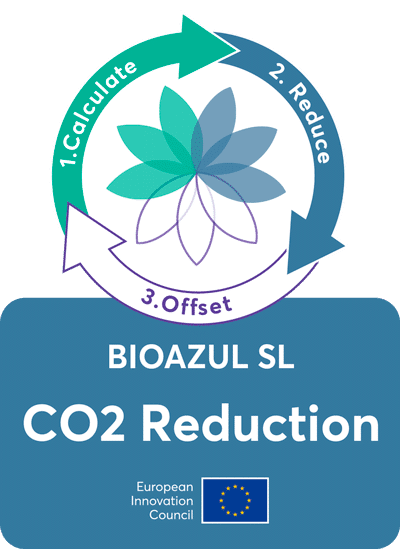Last October, the European P2GreeN project held its second annual consortium meeting in the city of Malaga with great success along with the first experience exchange workshop between the consortium pilots.
On October 16, 17 and 18, the 32 P2GreeN partners (from all over Europe) met in the TROPS rooms (Vélez-Málaga) to present and discuss the work carried out during this last year, reviewing the tasks in progress and the first reports presented to the European Commission. In parallel, several participatory workshops and interviews were organized with different project partners and ended on October 19 with the first P2GreeN experience exchange workshop (in English, cross-fertilization workshop) organized by BIOAZUL.
In addition, a visit was organized to the Spanish pilot’s experimental plot in La Axarquía, located next to the Algarrobo municipal WWTP. During the visit, the partners of the Spanish cluster had the opportunity to show and explain to the rest of the project partners the progress and progress of the pilot during this last year. We remember that the objective of the Spanish pilot is to develop an innovative and intelligent fertigation tool for nutrient control by applying reclaimed water in avocado and mango crops, according to the water and nutritional needs of the crop at all times. By adjusting and optimizing the use of fertilizers, nitrogen and phosphorus pollution in nearby bodies of water can be controlled and avoided.
A visit to the TROPS facilities was also organized, where members were able to learn about the work methods and processes used by TROPS to guarantee quality and excellence in fruit production. The European partners also enjoyed a tasting of mangoes from Axarquía.
To conclude the annual event, the first P2GreeN experience exchange workshop (in English, cross-fertilisation workshop) was organized at the NH Hotel in Malaga between the Swedish, German and Spanish pilots of the project. The purpose of the event, organized by BIOAZUL, was to present the P2GreeN solutions (currently in development) by each of the three pilot regions and contribute to their knowledge and acceptance, offering information to participants about the necessary conditions for boost your scaling process.
The workshop, which was organized in hybrid mode, had the active participation of local and regional authorities, as well as other key actors in the decision-making process, to discuss the implementation of circular systems with nutrients and present different governance schemes , strategies, financing instruments, etc. to create a dialogue aimed at understanding what the existing barriers are and providing possible solutions to the development of P2GreeN and its technological solutions.
The workshop was structured in three blocks, each one dedicated to the intervention of different key actors from each region, preceded by the intervention of Theodora Nikolakopoulou (Policy officer at DG Grow for fertilizer products) who shared with the attendees her work on the subject. of European legislation for fertilizer products.
Already in the first block, we were able to count on the participation of Anders Finnson, senior environmental advisor at Svenskt Vatten (Swedish Water and Wastewater Association), Johan Persson, property manager in the Gotland Region, and Embla Winge, developer real estate for sustainable construction at PEAB AB.
Embla Winge nos habló de su trabajo y papel determinante para transformar la forma en la que se construyen edificios e infraestructuras y así afrontar y prevenir el cambio climático, también de su participación en un proyecto para reciclar orina directamente en la propiedad y reducir la presión en la EDAR del municipio. Además, tienen otros objetivos complementarios como reciclar las aguas grises y el agua de lluvia.
From a more regional perspective, Johan Persson spoke about the role of the Gotland region in nutrient recovery, being directly responsible for the management of public toilets in the city of Visby. Johan spoke about the main environmental problems facing the island, especially in relation to water scarcity, and also showed a particular interest in collaborating with the Swedish pilot to recover nutrients and thus facilitate the separation and collection of urine for the subsequent production of biofertilizers.
Embla Winge told us about her work and decisive role in transforming the way buildings and infrastructure are built and thus confront and prevent climate change, also about her participation in a project to recycle urine directly on the property and reduce pressure on the municipal WWTP. In addition, they have other complementary objectives such as recycling gray water and rainwater.
Dr. Christiane Groß, Head of Department representing the Sanitation and Drainage Service in the municipality of Hanover, participated in the second block. Dr. Groß shared her experience in wastewater management and monitoring, and her interest in projects for water reuse and urine and feces recovery for biofertilizer manufacturing. She told us about the problem of groundwater contamination in the region and the great benefit that a reduction in wastewater discharged into the sanitation network would bring. He also presented the role of regional and national regulations in terms of water management, as well as the most innovative lines of action that have been followed in recent years, such as the expansion of the treatment offered in WWTPs to enable the production of regenerated water. , or institutional support for innovative projects such as EcoVillage Hanover. However, the regulatory framework is still restrictive and innovation projects such as P2GreeN will serve as case studies and “living labs” to demonstrate the safe use of biofertilizers from wastewater, urine and composted feces.
In the third and last block, we were able to count on the participation of Leonor Camacho, Technician responsible for the Environment sector in the Knowledge Transfer Area of TRADE, and Blanca Lucena, International Relations Technician at the Agrarian and Fisheries Management Agency of Andalusia (AGAPA). Leonor told us about the role of TRADE at the regional level and more specifically about the PLAnd SEQUÍA ANDALUCÍA, the Andalusian Open Innovation Platform for the reception, identification, analysis and transfer of capacities and solutions against drought. This new opportunity to disseminate the technological solutions proposed in P2GreeN and increase their potential to replicate them is very interesting. The platform currently has 84 registered entities and up to 105 solutions available to address drought and water scarcity in sectors such as agriculture, industry or tourism.
To conclude the workshop, Blanca told us about the European project HUMUS, of which AGAPA is a part as a partner and leader of several activities. This project, focused on obtaining “Healthy Municipal Soils” will develop different participation methodologies, as well as governance models at the regional and local level to implement solutions to the challenges of soil health, one of the challenges that P2GreeN also faces. . Very interesting is the HUMUS approach to increase the participation of citizens and other stakeholders of the quadruple helix at the local and regional level and thus maximize the impact of measures for soil health and related issues, highly replicable tools in P2GreeN, for which undoubtedly exists a strong synergy between both projects.
Throughout P2GreeN, two more experience-sharing workshops will be organized, in April 2025 and 2026. For more information about these workshops and the P2GreeN project, do not forget to visit the P2GreeN website and subscribe to its newsletter.
You can watch the workshop again here.
WE NEED YOUR OPINION
The P2GreeN project aims to support innovations that turn human sanitary waste (urine and wastewater) into fertiliser. However, we understand, that – from the point of view of acceptance – these innovations might split the society. Therefore, we would like to know your opinion trough this survey.
